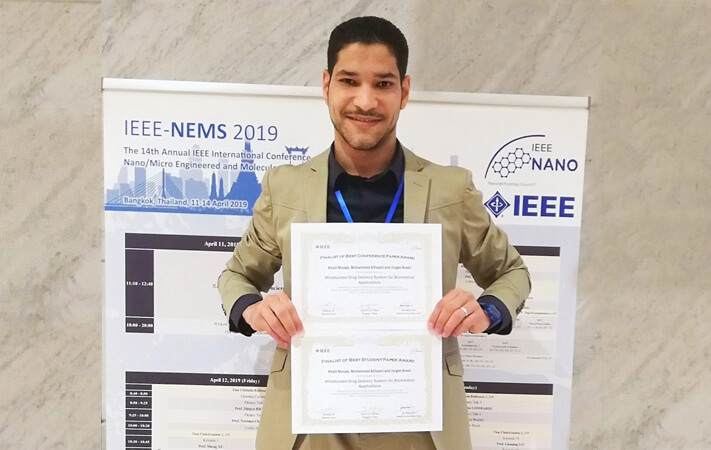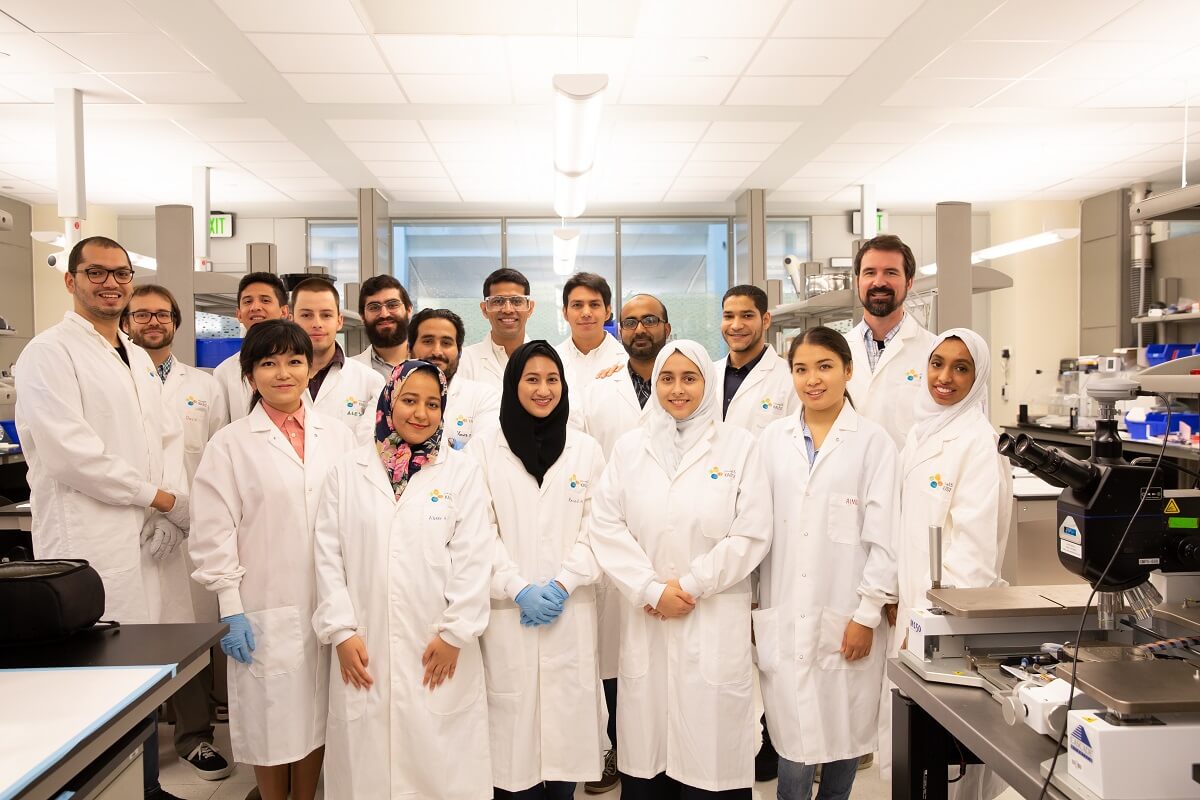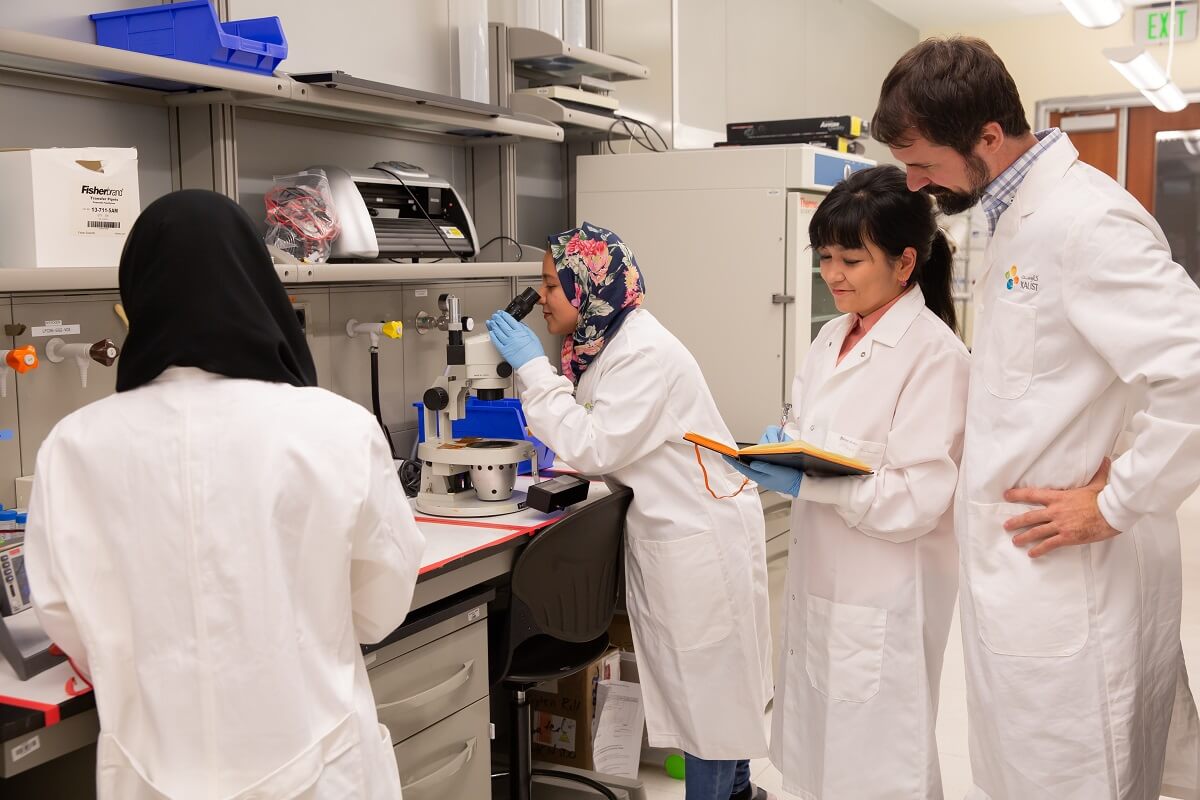Ph.D. student's innovative research wins awards

KAUST Ph.D. student Khalil Moussi recently won two awards for his research at the 14th Annual IEEE International Conference on Nano/Micro Engineered and Molecular Systems in Bangkok, Thailand. Image courtesy of Khalil Moussi.
By David Murphy, KAUST News
KAUST Ph.D. student Khalil Youssef Moussi recently had his innovative research recognized at the 14th Annual IEEE (Institute of Electrical and Electronics Engineers) International Conference on Nano/Micro Engineered and Molecular Systems (NEMS). At the event, which was held in Bangkok, Thailand, from April 11 to 14, the electrical engineering student was a finalist of the Best Student Paper Award and a finalist of the Best Conference Paper Award.
Moussi's presentation at the conference is part of a larger project in KAUST Associate Professor Jürgen Kosel's Sensing, Magnetism and Microsystems (SMM) group. The project has been going on since late 2016, when a collaboration began between a cardiologist from King Abdullah International Medical Research Center (KAIMRC) and Kosel. The collaboration proposed the use of KAUST-developed technology to help tackle one of the leading causes of fatalities worldwide—coronary artery disease.
'Miniaturized Drug Delivery System for Biomedical Applications'
The paper Moussi presented at NEMS, which was titled "Miniaturized Drug Delivery System for Biomedical Applications," showcased the fabrication process behind the development of a wirelessly powered miniaturized drug delivery system that exploits the versatility of 3D printing and the efficiency of molding.
The device, which is composed of an electrochemical micro-pump, a 3D printed reservoir (with microneedles) and a wireless powering unit, offers many customizable properties. The device can be altered to accommodate specific shape, size and performance requirements. It can also be tailored to fit a wide range of in vivo drug delivery applications.

KAUST Ph.D. student Khalil Moussi is pictured here (back row, second on right) with members of the Sensing, Magnetism and Microsystems lab group led by KAUST Associate Professor Jürgen Kosel (back row, first on right). Photo by Sarah Munshi.
"I was very honored to represent KAUST at such an event," he continued. "It was so special that our work was selected twice. Our high-quality research work and my presentation were highly appreciated and acknowledged by the program committee and attendees. At the event, we received great publicity for our project as well as for KAUST in general."
Realizing a lifelong passion for science
Moussi stated that his great passion for discovery and a lifelong fascination for science "triggered his decisions and shaped his career track."
In his native Tunisia, Moussi obtained a bachelor of science degree in electromechanical engineering and a master of science in robotics from the National Engineering School of Sfax (ENIS). After his time at ENIS, and as someone "excited to obtain the highest level of education," he noted, he decided to pursue his Ph.D. in electrical engineering at KAUST.
Moussi found that at the University, he could pursue his broad array of research interests including—but not limited to—drug delivery, biomedical devices, bioengineering and microelectromechanical systems (MEMS). As part of the SMM group, Moussi and his colleagues focus on developing magnetic devices for cancer cell destruction; multifunctional biomimetic nanocomposite tactile sensors; remotely operated drug delivery systems; energy harvesting devices; smart nanoprobes for cell studies; and marine animal magnetic sensor monitoring systems.

KAUST Associate Professor Jürgen Kosel (right) works with students from his Sensing, Magnetism and Microsystems lab group in his lab on campus. Photo by Sarah Munshi.
"Every little contribution to the well-being of humankind can be a magnificent achievement," he continued. "I want to thank my professor for his continuous support and trust [and] all my colleagues in the SMM lab for their help. I cannot thank KAUST enough for providing all the infrastructure for our continued success and innovation."

